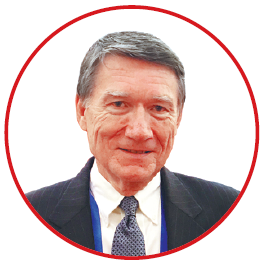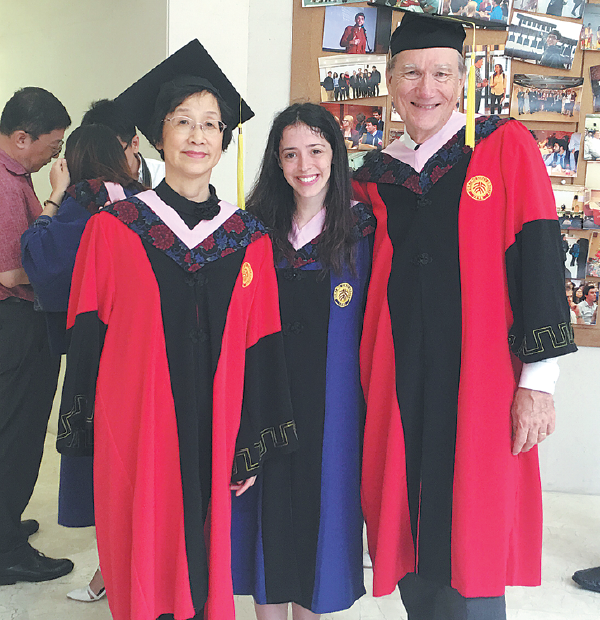
1974-76: MA, Chinese language and literature, Stanford University
1970-74: BA magna cum laude, Chinese language and literature, University of Minnesota Twin Cities
AWARDS:
2017: Foreign Educator of the Year, presented by the State Administration of Foreign Expert Affairs; Chinese Government Friendship Award
CAREER:
2017-present: President and CEO, US-China Strong Foundation
2013-present: Nonresident senior associate, Carnegie Endowment for International Peace
2010-present: Senior adviser, Vermilion Partners
2014-17: Associate dean, Peking University's Yenching Academy
2014-17: Professor of management practice, Peking University's Guanghua School of Management
2008-13: Managing director and senior adviser, Hill+Knowlton Strategies, Beijing
2005-08: Chairman of China operations, Shaklee Corp
1998-2005: President, National Committee on US-China Relations
1986-1998: Various senior management positions with Cargill
How search for knowledge helped lift China's reform

Holden said there are two major lessons the Chinese have learned over 40 years of tremendous change.
"One thing is that change is good, necessary and possible. The idea of reform is closely aligned with progress. That is a major conclusion that people have. Things can always be made better," he said. "The second thing is opening-up. For China to open its door to invite foreigners and foreign ideas in, and to open its doors for its own people to travel, to study abroad, this is a very good thing."
At the Boao Forum for Asia on April 10, President Xi Jinping said China will continue to adhere to its fundamental national policy of opening-up and pursuing development with its door wide open.
Holden said he believes there are several dimensions to openness. One is the interaction with the outside world on trade and investment. "For that, one can certainly see China has plans to do more," he said.
Another dimension is China taking a bigger role on the world stage and in international organizations to shoulder more responsibility on common goals, he said, while a third dimension, opening to new ideas, is essential because innovation and technology matter to future economic growth.
"Quoting every previous (US) president since Richard Nixon, they all meant that we hope that China will be successful, which is good for a quarter of the world's population, and eventually will be good for the rest of the world. We hope that. Together with that is a sense of being open to all kinds of ideas."
China's practice of reform and opening-up has been widely acknowledged across the world, according to Holden.
"Every country should look at China for certain, but to pick and choose what it wants and what it doesn't want," he said. Looking ahead, Holden said every country will need to work together, particularly on issues like artificial intelligence and advanced biological development.
"We have to continue talking with each other and deal with some of the problems because these are really global issues. If one country goes way off in this direction by itself, that could be problematic. We do need to coordinate. We have to have conversations on AI," he said.
"There is a lot to work on. It requires big investment from Americans and Chinese to create a better future. Right now, it's a challenging time, and we have to do more."


